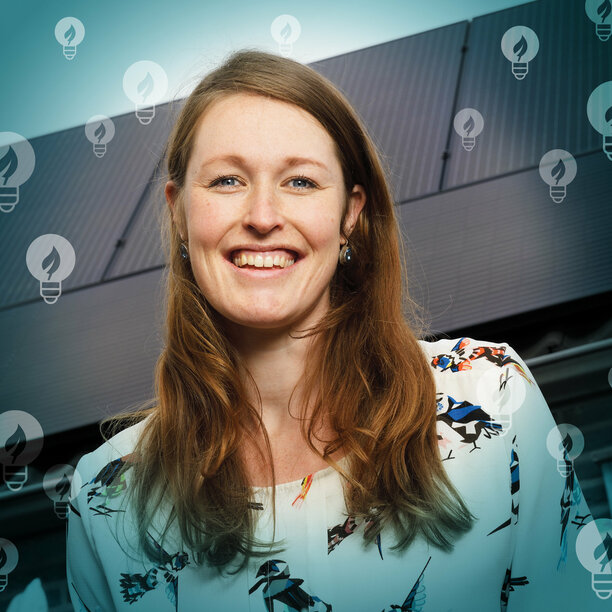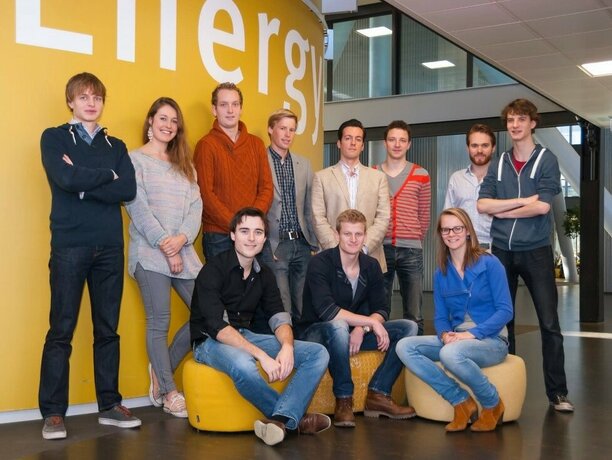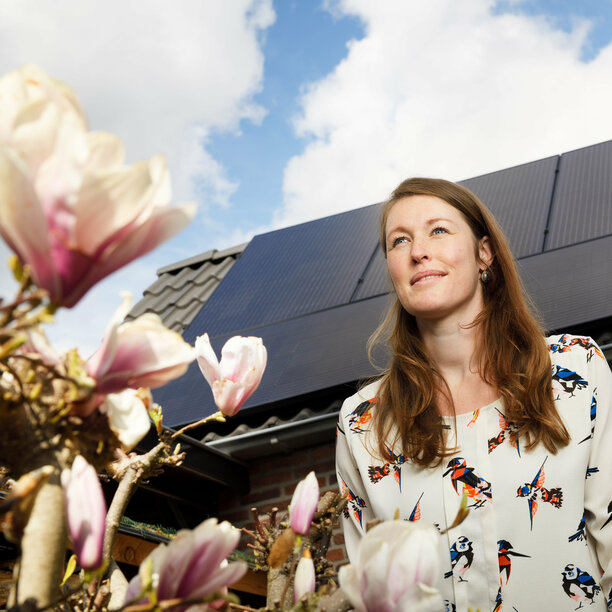Don’t just talk, start acting
After obtaining her Bachelor degree in Science, Business and Innovation at VU University, Minke Goes pursued her Master’s degree in Sustainable Energy Technology at TU/e, where she graduated in 2015. ‘During my Bachelor, which comprised a multidisciplinary course program, I got inspired by innovations in the Energy Technology sector. Since I wanted to understand how the energy system is working, I decided to take up a Master’s program that went more in-depth into the technologies involved,’ Goes explains her choice for Eindhoven’s Sustainable Energy Technology program.
Changing attitudes
After her graduation, pursuing a career in the energy sector was a no brainer for her. She started as a consultant at Ecofys, which after several mergers eventually became Guidehouse. ‘During my time as a consultant, I witnessed a significant change of attitude,’ she recollects. ‘Where at first, most of my assignments involved developing a vision on a sustainable energy system in 2050, during later years the questions became focused on the next steps that organizations should take.’ Also, the complexity of the challenges has increased, Goes experiences. ‘It is easy to talk about the far future. Once we start talking about next steps, the energy transition begins to impact all of us. As a result, I have noticed that people are getting afraid of making any decisions, knowing we might regret them later. Though this journey is full of unexpected twists and turns, the one certainty we have is that if we do not act now, we will be too late. As far as I am concerned, we shouldn’t linger in the talking phase, exploring all theoretically possible routes. Everyone should start making changes where they can, to make sure we will end up where we want to be in, say, 2050. And perhaps, in hindsight, knowing everything, you might have made other choices, but you need to act to learn.’
Introducing smart heating
In her current job as Manager New Business for the business unit focusing on deep green collective heat systems at Essent, she brings this pragmatic vision into practice. ‘The aim is to establish what we call a smart district heating network, or a 5th generation heat network. The innovative concept is based on three principles: reduce the need for thermal energy by energy efficiency programs; balance heat and cold demand within and between buildings to further reduce the need for additional energy; and use sustainable energy to generate heat or cold where and when needed. One additional thing I really like about it is the ability to start small and modularly grow the system, which reduces the risks, hence the talking part, significantly.’


